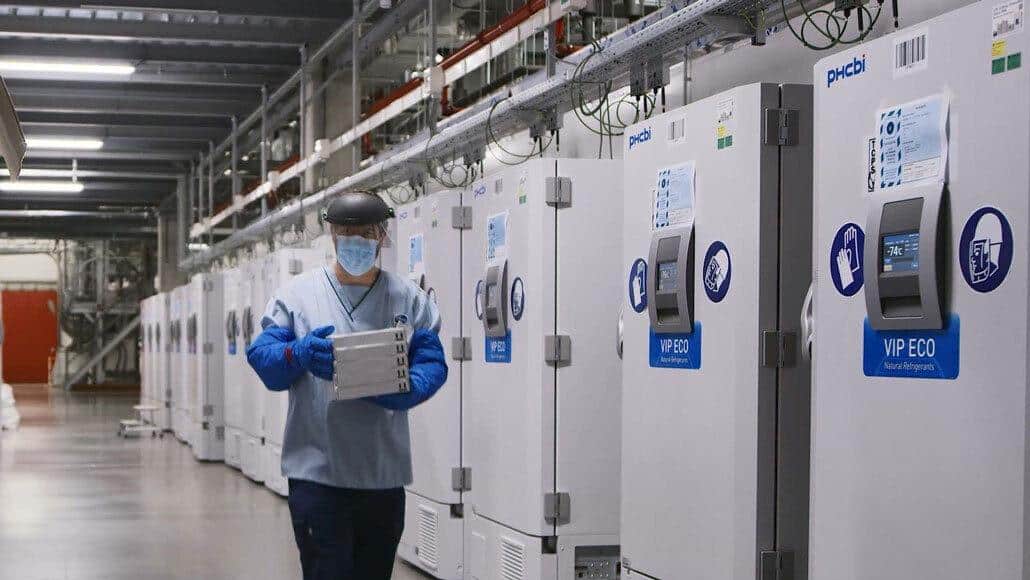In this article, we will explore how the cold storage industry was instrumental in the COVID-19 vaccine distribution, the lessons learned from this experience, and how we can better prepare for future pandemics. The COVID-19 pandemic brought unprecedented challenges, prompting a global race to develop, distribute, and administer vaccines, Among the critical elements of this immense undertaking was the cold storage industry, which played a pivotal role in ensuring the safe storage and distribution of these life-saving vaccines.
About Carlisle Energy Solutions
Carlisle Energy Solutions, established in 2009, is a leading distributor of energy savings products for the cold storage industry. The company’s mission revolves around enhancing energy efficiencies and reducing costs for cold storage warehouses, focusing on products like produce, meat, seafood, and dairy. Carlisle Energy Solutions achieves this by providing innovative technologies and strategic business solutions that significantly reduce energy consumption, aligning with the heightened demand for energy cost reductions in the cold storage industry.
The Role of Cold Storage in COVID-19 Vaccine Distribution
The introduction of COVID-19 vaccines necessitated efficient cold storage and distribution mechanisms due to the stringent temperature requirements for their preservation. Many of these vaccines, such as the Pfizer-BioNTech vaccine, required ultra-low temperature storage, often as low as -70°C (-94°F). The cold storage industry stepped up to meet these demands, leveraging their expertise and infrastructure to ensure proper vaccine storage and distribution.
The cold storage facilities, equipped with state-of-the-art temperature control systems, played a crucial role in preserving the integrity and efficacy of the vaccines. They acted as vital links in the distribution chain, maintaining the required temperatures and safeguarding the vaccines until they reached their destinations for administration.
Lessons Learned and Future Preparedness
The COVID-19 vaccine distribution experience offers valuable lessons for the cold storage industry and broader pandemic preparedness:
- Enhanced Infrastructure and Technology Integration
The successful storage and distribution of COVID-19 vaccines highlighted the need for continued investment in cutting-edge infrastructure and technology. Future preparedness should involve integrating advanced temperature monitoring systems, automation, and energy-efficient solutions to optimize operations and ensure compliance with stringent storage requirements.
- Collaborative Partnerships
Collaboration between stakeholders, including government agencies, vaccine manufacturers, logistics providers, and cold storage companies, was instrumental in the effective distribution of the COVID-19 vaccines. Establishing and strengthening these collaborative partnerships will be crucial for future pandemic responses, ensuring a coordinated and efficient approach to vaccine distribution.
- Resilience and Flexibility
The ability to adapt and respond swiftly to evolving situations is vital. Cold storage facilities should focus on enhancing their resilience and flexibility, allowing for rapid adjustments in storage capacities, temperature requirements, and distribution strategies based on the specific demands of future pandemics or health crises.
- Sustainable Practices
Sustainability should be a core consideration in future cold storage solutions. Implementing energy-efficient practices and eco-friendly technologies not only reduce operational costs but also align with global efforts to combat climate change and reduce the industry’s carbon footprint.
Conclusion
The COVID-19 pandemic underscored the critical role of the cold storage industry in vaccine distribution and the need for enhanced preparedness for future pandemics. By investing in advanced technology, fostering collaborative partnerships, prioritizing resilience, and embracing sustainability, the cold storage industry can play an even more effective role in safeguarding public health during times of crisis.
For more information about how Carlisle Energy Solutions contributes to energy-efficient cold storage solutions, contact us.

